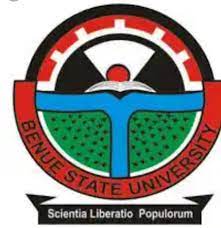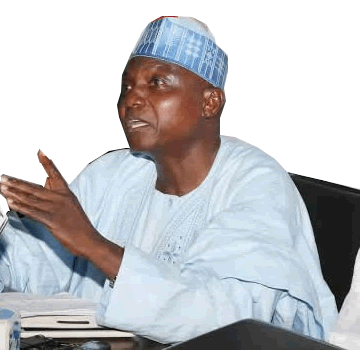BUSINESS
Emefiele’s Seven Years of Central Banking By Ademola Bakare

Mr. Godwin Emefiele, the Governor of the Central Bank of Nigeria (CBN), is a foremost development economist, with a quest to bequeath a central bank that is professional, apolitical, and people-focused in addition to building a resilient financial system that can serve the growth and development needs of the country.
Acknowledging successes recorded by his predecessors in financial stability, low inflation, exchange rate stability, efficient payments system and consistent monetary policy, the Governor on his assumption of office on June 4, 2014, noted that he would leverage those gains to champion policies that will promote macroeconomic stability.
Unpretentious of potential threats in the financial system, Emefiele declared then that the core of his vision would be to effectively manage potential threats to financial stability and create a strong governance regime conducive for financial intermediation, innovative finance, and inclusiveness. This he anchored on two pillars – managing factors that create liquidity shocks and zero tolerance for practices that undermine the health of financial institutions.
Emefiele never left anyone in doubt of his desire to chart a trajectory that distances from the ordinary. This, no doubt, came from the twin problem of endemic poverty and embarrassing youth unemployment pervading the country.
His steely focus on delivering on his mandate of ensuring economic stability, reflected in his unabashed passion and commitment for a better Nigeria drove the rollout of intervention windows in critical sectors of the economy – Agriculture, Power and Electricity generation (Nigeria Electricity Market Stabilization Facility and Nigerian Bulk Electricity Trading Payment Assurance Facility), Aviation, Textile, Cotton and Garment (TCG), the Presidential Fertilizer Initiative and healthcare, among others.
Barely a year in office in 2015, he introduced the audacious Anchor Borrowers’ Programme (ABP), a policy necessitated by the dwindling fortunes of the country from oil revenue, Nigeria’s mono-product, and major source of revenue.
Nigeria, a country naturally endowed with material and human resources to fend for itself, has embarrassingly embraced other peoples’ taste at the detriment of its economy. This taste has led to the exportation of jobs, created wealth in other nations and draining the country’s scarce foreign reserves.
These precarious uncertainties birthed the policy that suspended 41, and later 43 items, from the official forex window issued to protect and encourage their local farming and production, thus urging Nigerians to return to agriculture. To date, as part of the backward and forward integration policy of the Bank, 3,107,949 smallholder farmers have so far benefitted from the Anchor Borrowers’ Programme window as at April 2021.
In addition to the ABP, the CBN under Emefiele’s leadership have also launched about 34 interventions across critical sectors of the economy. Notably also is the launch of Youth Empowerment Programme (YEDP) in 2016 by providing credit to harness the entrepreneurial skill and innovative capacities of the youths through a well-structured business model.
As at May 28, 2021, YEDP has had 585,593 beneficiaries and have received N462,722bn in credit support from its interventions window for MSMEs.His aggressive pursuit of economic diversification got the backing of President Muhammadu Buhari, and his collaboration with the fiscal authority has largely made him successful on his mission. His re-appointment as the Governor of the Central Bank of Nigeria is a testament to this fact.
In 2020, the year had started on a promising note as economic indices and increased activities arising most especially, from the CBN sustained interventions in agriculture and Small and Medium Enterprises (SMEs). The outbreak of the COVID-19 pandemic halted that trajectory.Nations shut their borders, and banned export of commodities, particularly rice. It is best left to the imagination what would have happened to Nigeria if the CBN intervention programmes and policies were not in place.
To mitigate the adverse effect of the outbreak on the economy, Governor Emefiele and his team, in quick succession rolled out targeted facilities, starting with a N50bn Targeted Credit Facility (TCF), followed by a N100bn credit support for healthcare sector to mitigate the effects of the pandemic.
Knowing he could not do it alone; he rallied the private sector stakeholders on a rescue mission. A private sector task force, the Coalition Against COVID-19 (CACOVID) was set up to assist the government and its agency, the Nigeria Center for Disease Control (NCDC) and the World Health Organisation (WHO).
The CACOVID spearheaded the task of pulling resources across industries to provide technical and operational support as well as funds, building advocacy through aggressive awareness campaign. Governor Emefiele in the past seven years of central banking in Nigeria has witnessed some dramatic twist of events and challenges. Steering the nation out of two economic recessions is no mean feat.
Interestingly, the technique Emefiele deployed in resolving these challenges has been ingenious, rather far from usual expectations. This, to a reasonable extent attested to his leadership style and strategy since he stepped into office in 2014.
The security challenge in the country is indeed worrisome, and capable of obliterating the gains of the past seven years if not urgently addressed. However, Godwin Emefiele had appealed recently to the government, and it is hoped that current effort of the security agencies will bring the desired respite and peace in the country.*Ademola Bakare writes from Abuja
Economy
Minister Says Upgrading MAN to Varsity will Unlock Maritime Opportunities

Mr Adegboyega Oyetola, the Minister of Marine and Blue Economy says upgrading the Maritime Academy of Nigeria (MAN), Oron to a university, will unlock opportunities in the maritime economy.
Oyetola made the expression at the 2024 MAN cadets graduation ceremony in Oron, Akwa Ibom on Saturday.
Represented by Mr Babatunde Bombata, the Director, Maritime Safety and Security, the minister said the Federal Government was working assiduously to unlock opportunities within the marine and blue economy.
He said that the ministry was already collaborating with the Ministry of Education and the Nigerian Universities Commission to ensure MAN’s seamless transition to a university.
“It is our hope that this upgrade will unlock new opportunities for advanced learning, cutting edge research and innovation within the marine and blue economy fields,” he said.
Oyetola urged the graduating cadets to be innovative, resourceful and forward looking in their future endeavours.
“The maritime and blue economy sectors are filled with opportunities, so your contributions to the sector will be instrumental in ensuring a brighter future.
“The government is committed to fostering excellence and innovation in these fields, and we eagerly anticipate the positive impact you will make in your careers,” he said.
He further said that the Federal Government was working on developing a national policy on marine and blue economy.
“This policy will serve as a strategic framework to drive economic diversification, attract investments, create jobs and youth empowerment.
In his remarks, Gov. Umo Eno of Akwa Ibom, said the state government would continue to collaborate with the academy to develop the maritime sector.
Represented by the Commissioner for Internal Security and Waterways, Gen. Koko Essien, (Rtd), Eno urged the graduating cadets to utilise their training in developing the maritime sector.
“I am hopeful that you will utilise the training you have acquired here to further your career as seafarers and in the development of our blue economy,” he said.
Eno commended the Acting Rector, Dr Kevin Okonna and his management team for their commitment towards repositioning the academy for greater results.
Earlier, Okonna said that graduates of the institution had contributed immensely to the growth of Nigeria’s maritime and blue economy.
“Today, we have an opportunity to celebrate a new set of well-trained personnel to the maritime and allied industries.
“We pride ourselves as the pioneer maritime training institution, this is because of the institution’s contributions to national development,” he said.
The acting rector urged the graduating cadets to made effective use of the knowledge gained during their training to make meaningful impact on the growth of the maritime sector.
Report says that awards were given to graduating cadets who distinguished themselves in character and learning. (NAN)
Economy
Investors Gain N183bn on NGX

The Nigerian Exchange Ltd. (NGX) continued its bullish trend on Wednesday, gaining N183 billion.
Accordingly, the market capitalisation, which opened at N59.532 trillion, gained N184 billion or 0.31 per cent to close at N59.715 trillion.
The All-Share Index also added 0.31 per cent or 303 points, to settle at 98,509.
68, against 98,206. 97 recorded on Tuesday.Consequently, the Year-To-Date (YTD) return increased to 31.
74 per cent.Gains in Aradel Holdings, Zenith Bank, United Bank For Africa(UBA), Oando Plc, Nigerian Breweries among other advanced equities drove the market performance up.
Market breadth closed positive with 34 gainers and 17 losers.
On the gainers’ chart, Africa Prudential, Conoil and RT Briscoe led by 10 per cent each to close at N14.30, N352 and N2.42 per share, respectively.
Golden Guinea Breweries followed by 9.95 per cent to close at N7.18, while NEM Insurance rose by 9.74 per cent to close at N10.70 per share.
On the other hand, Julius Berger led the losers’ chart by 10 per cent to close at N155.25, Secure Electronic Technology Plc trailed by 9.52 per cent to close at 57k per share.
Multiverse lost 7.63 per cent to close at N5.45, Haldane McCall dropped 6.07 per cent to close at N4.95 and Honeywell Flour shed 5.62 per cent to close at N4.70 per share.
Analysis of the market activities showed trade turnover settled lower relative to the previous session, with the value of transactions down by 49.44 per cent.
A total of 320.10 million shares valued at N6.48 billion were exchanged in 7,943 deals, compared with 939.41 million shares valued at N12.81billion traded in 9,098 deals posted in the previous session.
Meanwhile, ETranzact led the activity chart in volume with 70.27 million shares, while Aradel led in value of deals worth N1.22 billion.(NAN)
Economy
Yuan Weakens to 7.1870 Against Dollar

The central parity rate of the Chinese currency renminbi, or the Yuan, weakened 22 pips to 7.1870 against the dollar on Monday.This is according to the China Foreign Exchange Trade System.In China’s spot foreign exchange market, the Yuan is allowed to rise or fall by two per cent from the central parity rate each trading day.
The central parity rate of the Yuan against the dollar is based on a weighted average of prices offered by market makers before the opening of the interbank market each business day. (Xinhua/NAN)

















